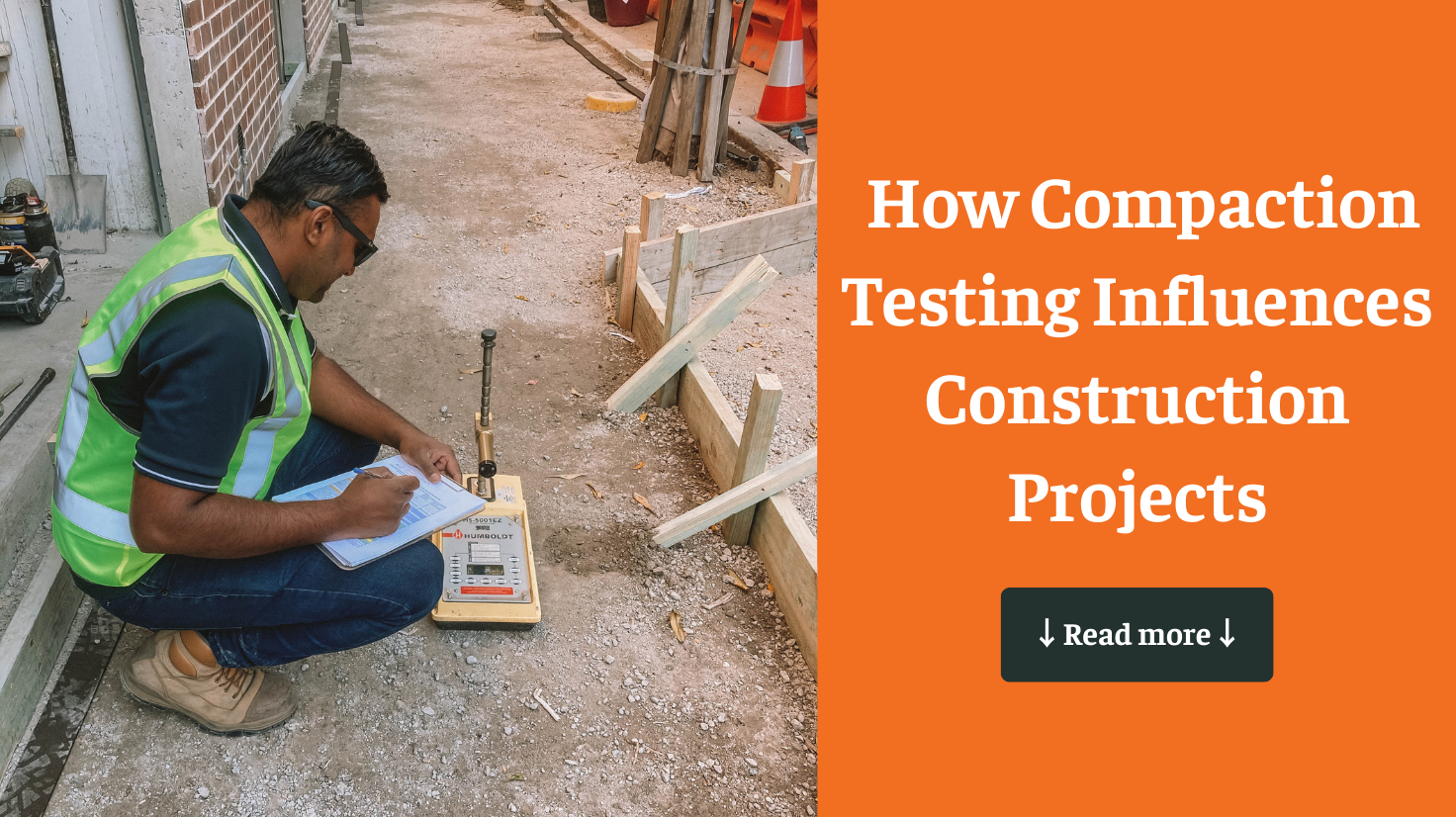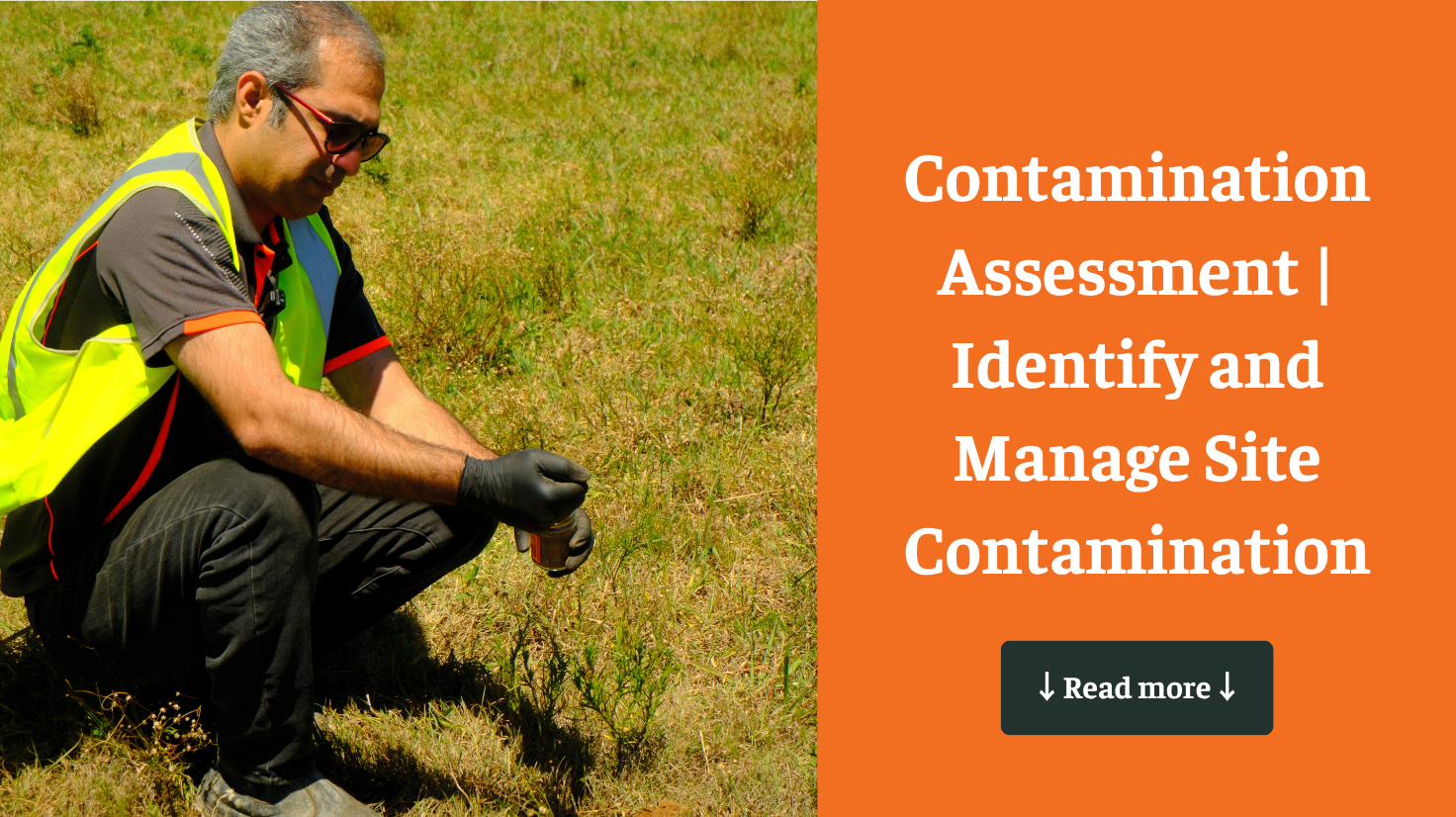Compaction testing plays a crucial role in the success of construction projects. It’s not just about measuring soil density and moisture content. It’s about ensuring that the foundation of a structure—whether it’s a building, road, or bridge—is strong, stable, and capable of supporting the loads placed on it. In geotechnical engineering, compaction testing guides engineers in foundation design, soil treatment, and other critical decisions. Below, we explore how compaction testing influences the outcome of construction projects.
1. Foundation Design
Compaction testing significantly impacts foundation design. Soil serves as the base for any structure, and its ability to support a foundation depends on how well it’s compacted. Through compaction testing, engineers gather crucial data about soil load-bearing capacity, density, and moisture content. This information helps them design a foundation that matches the specific characteristics of the soil on-site.
- Why it Matters: If soil isn’t compacted adequately or uniformly, the foundation may settle unevenly over time. This can lead to cracks, structural shifts, or even failure. Compaction testing helps prevent these issues by ensuring that the soil meets necessary compaction standards before construction begins.
- Design Adjustments: When testing shows that soil doesn’t meet the required density for the intended structure, engineers can adjust the foundation design. They might recommend deep foundations, such as piles or piers, to transfer the load deeper into stable soil layers. Alternatively, engineers can suggest soil treatment methods like chemical stabilisation to improve soil properties.
Compaction testing ensures that foundations rest on solid ground, reducing the risk of future structural issues.
2. Road Construction
In road construction, soil compaction is essential for creating a durable base. Roads face constant pressure from vehicles, and any weakness in the underlying soil can cause potholes, cracks, or uneven surfaces. Compaction testing verifies that the soil and aggregate layers beneath the pavement are compacted to the right density, ensuring a stable base that won’t deform under pressure.
- Stable Base: A well-compacted base prevents the road from shifting or settling unevenly. Without proper compaction, roads can develop surface issues that shorten their lifespan and require costly repairs.
- Traffic Load Resistance: Roads must support vehicle weight, from light cars to heavy trucks. Compaction testing ensures that the soil can handle these loads without collapsing or becoming unstable. This is especially critical for highways and high-traffic areas where load demands are higher.
Compaction testing helps roads stay durable and functional, minimising maintenance costs and extending their lifespan.
3. Erosion Control
Soil erosion is a major concern, particularly for projects involving embankments, slopes, and other areas exposed to water or wind. Erosion weakens soil, causing it to shift, collapse, or wash away. Compacted soil resists erosion more effectively because tightly packed particles leave little room for water or wind to penetrate.
- Water Infiltration: Compaction testing ensures that soil is compacted enough to resist water infiltration, a leading cause of erosion. When water enters uncompacted soil, it loosens particles and leads to erosion. Compacted soil forms a barrier, preventing water from seeping in and causing damage.
- Stability for Embankments and Slopes: In projects involving embankments, levees, or slopes, compaction testing ensures soil remains stable and less prone to erosion. For example, on highway embankments, compacted soil keeps rainwater from eroding the slope, maintaining the integrity of the road above.
By compacting soil to the correct density, engineers reduce the risk of erosion, keeping landscapes and structures secure.
4. Cost Savings
Compaction testing not only ensures structural stability but also delivers significant cost savings. Properly compacted soil reduces the need for expensive repairs, maintenance, or reconstruction. By identifying and addressing soil compaction issues early in the construction process, projects are more likely to stay on schedule and within budget.
- Avoiding Future Repairs: Poorly compacted soil can lead to uneven settlement, foundation cracks, and pavement damage. Repairing these issues is expensive and disruptive. By conducting thorough compaction tests during construction, engineers can prevent these problems, ensuring long-lasting structures.
- Reducing Delays: Compaction testing also helps prevent delays. If soil can’t support the intended structure, engineers can take immediate corrective action. They might adjust construction techniques or improve soil properties, avoiding future project delays.
- Long-Term Savings: Proper compaction testing leads to durable foundations, roads, and infrastructure. This reduces the need for repairs and lowers the overall project cost. Municipalities, property owners, and construction companies benefit from fewer maintenance expenses and longer-lasting results.
Compaction testing is a cost-effective solution that ensures project success by preventing costly repairs, delays, and structural problems.
5. Conclusion
Compaction testing plays a vital role in every phase of a construction project. How compaction testing influences construction projects can be seen in its ability to help engineers design stable foundations, extend road longevity, control erosion, and prevent costly repairs. By ensuring that the soil is compacted to required standards, compaction testing reduces the risk of foundation failure, settlement, and other structural issues.
When incorporated into the planning and execution stages of a project, how compaction testing influences construction projects becomes clear as it provides a solid foundation for safer, more durable, and cost-effective construction outcomes. Whether it’s a building foundation, road, or embankment, compaction testing is a crucial step that secures long-term project success.
Order Our Geotechnical Services Now






